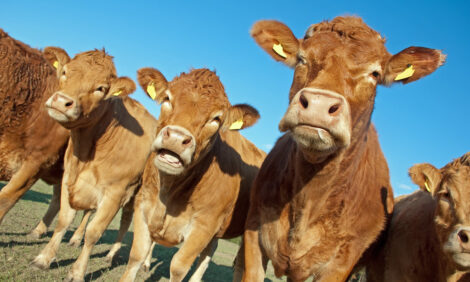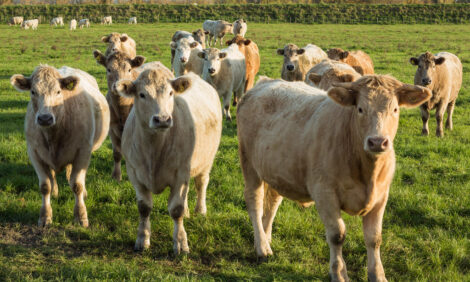



New Ambitious Agenda Set by Dairy Industry
NEW ZEALAND - Dairy farming groups in New Zealand have set out a clear and ambitious agenda for sustaining the development of their industry and addressing community and global expectations for continual improvement in on-farm environmental practices.A new dairy industry strategy, Making Dairy Farming Work for Everyone, launched tonight at Parliament with the Prime Minister and Minister for Primary Industries, is aimed at enabling farmers to build economically sustainable businesses alongside a strong focus on environmental actions.
One of the first actions from the strategy is a new dairy industry water accord with commitments and targets to enhance the performance of dairy farming as it affects freshwater.
The new strategy has been developed by industry body DairyNZ, in partnership with the Dairy Companies Association of New Zealand (DCANZ), the Federated Farmers of New Zealand dairy section and the Dairy Women’s Network.
It sets out 10 objectives including proactive environmental stewardship and wise use of natural resources, providing a world-class on-farm work environment and ensuring talented people are attracted to the industry. Research to develop innovative technologies and solutions is also a key objective.
DairyNZ chairman John Luxton says milk production in New Zealand has grown 47 percent in the last ten years and reached 1.7 billion kilograms of milksolids in 2012.
“Twenty-one percent of New Zealand’s grasslands are now used for dairy farming. With over $13 billion in dairy exports in 2012 and a $5 billion contribution to national Gross Domestic Product, our industry employs 45,000 people. The Government has a Business Growth Agenda and we are right behind that in terms of working with them to continue to grow our export contribution to national prosperity. The work we are doing together through the Primary Growth Partnership is a big part of that.
“But the size and scale of our industry demands that we have a new plan for farming competitively and responsibly. And that is what this new strategy is all about.”
John Luxton says dairy farmers in New Zealand now produce enough milk to provide dairy products for 165 million people. “Dairy farming has a great opportunity over the next decade as markets and economic power shifts to our advantage. New Zealand is well positioned as the biggest supplier of traded dairy products to the large, rapidly growing economies of Asia. Supply can’t keep up with demand. Global dairy markets offer significant growth and value creation opportunities over the next decades including providing world class career opportunities.
“We are a small player on the world scene at only two to three percent of global supply but with demand growing at around three percent each year, that’s still a huge opportunity. We are talking about food and there is very little that has a greater human imperative than food.”
DCANZ chairman Malcolm Bailey says the new water accord, launched together with the new strategy, is supported across the industry and sets national environmental benchmarks for dairy farming covering stock exclusion from waterways and riparian, effluent, nutrient and water use management. It also sets outs new industry standards for conversions of land to dairying.
“The new water accord is an industry programme of self-improvement with targets, actions and commitments. We will also report publicly on progress through an annual, independently audited report,” he says.
Federated Farmers’ dairy chairperson, Willy Leferink says farmers will also be working on water quality projects at the catchment and community level as regional councils set out about putting policies in place over the next few years around the country.
“In some places we expect we will have to go above and beyond what is in this water accord as we work through water quality projects at the community level. As dairy farmers we have to lift our game on water quality if we want to meet the aspirations we have as an industry while still earning the respect of the rest of the community. This strategy and the new water accord are putting that commitment down on paper for all New Zealanders to see.”


